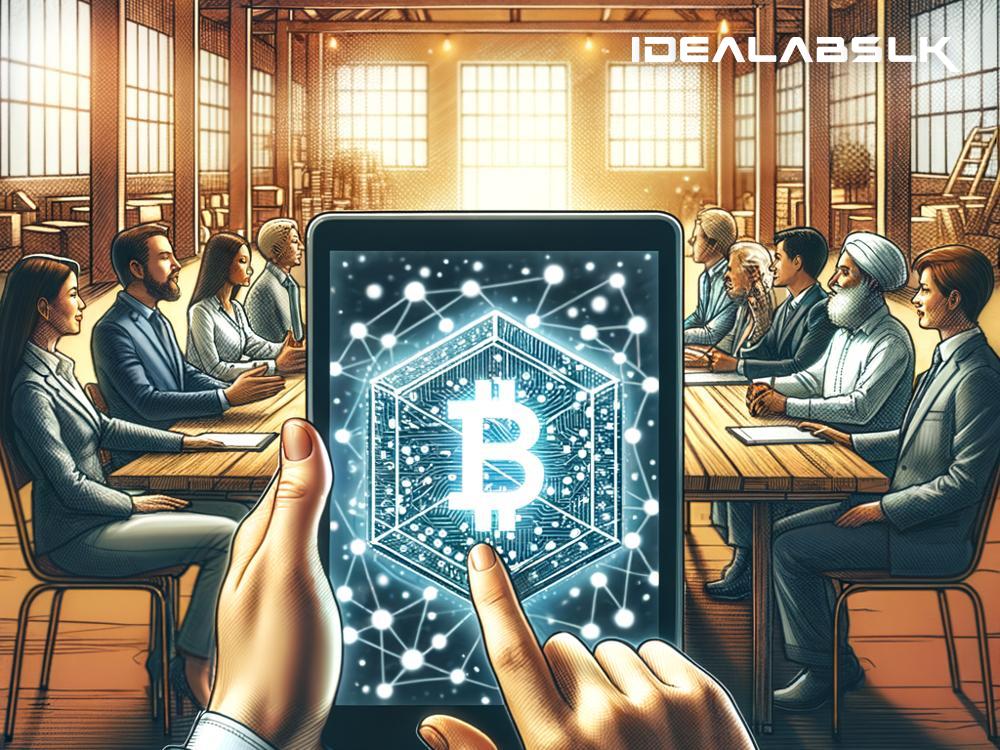Title: Unraveling the Magic of Blockchain in Ethuring Ethical Supply Chains
In a world constantly seeking transparency and authenticity, blockchain technology emerges as a shining beacon of hope, especially in the realms of ethical supply chains. If you've ever wondered how that coffee cup you're sipping manages to taste guilt-free, or how the T-shirt you're wearing claims to harm no one in its making, then you're about to step into the enlightening world of blockchain and its pivotal role in ensuring ethics in supply chains. Let's dive into this revolutionary technology in simple English.
What is a Supply Chain, and Why Should it Be Ethical?
Imagine a classic relay race where the baton passes through several hands before reaching the finish line. A supply chain works similarly, where the product (baton) moves from raw material suppliers to manufacturers, then to retailers, and finally into your hands, the consumer. An ethical supply chain ensures that at every relay point, fair practices are upheld. This means no child labor, fair wages for workers, environmental protection, and overall, a transparent process that you, the end consumer, can trust.
The Magic Wand of Technology: Blockchain
Picture a giant, indestructible ledger shared among multiple users, where every transaction or movement of goods is recorded and verified by everyone. That's blockchain for you. Just as a chain is made up of linked parts, blockchain technology links pieces of digital information (blocks) together on a public database (chain). Once a piece of information is added, it's nearly impossible to alter, making it a fort of transparency and honesty.
The Role of Blockchain in Ethical Supply Chains
Now, let's marry the concept of ethical supply chains with blockchain technology and witness how this union works wonders.
-
Transparency at Every Step: Blockchain's ledger system records every move of a product, from the cotton farm for your T-shirt to the store where you bought it. This means any claims of ethical practices can be verified at any stage, offering unmatched transparency.
-
Proving the Claims: Ever noticed labels like "Fair Trade" or "Organically Grown"? Through blockchain, these aren't just feel-good stickers but verifiable claims. By scanning a QR code, consumers can trace the entire journey of a product, ensuring that what they're buying truly aligns with their ethical standards.
-
Eliminating the Middlemen: Traditional supply chains have numerous intermediaries, making the verification of ethical practices challenging and often opaque. Blockchain simplifies these chains, allowing direct communication and transactions between producers and consumers, thereby enhancing trust.
-
Preventing Counterfeits and Fraud: Since altering information on a blockchain is nearly impossible, the authenticity of products is maintained. This combats counterfeits and ensures that consumers receive genuine products that adhere to ethical standards.
-
Empowering Workers: By making supply chains transparent, blockchain also shines a light on the workers involved, ensuring they're treated fairly. It could mean validating that a farmer receives a fair portion of the profits or that factory workers operate in safe conditions.
Practical Examples of Blockchain in Action
-
Fashion Industry: Some fashion brands are now using blockchain to verify the ethical sourcing of materials. Consumers can scan a label to see the entire journey of a garment, including where the fabric was made, dyed, and assembled.
-
Coffee Supply Chain: Blockchain is helping coffee enthusiasts sip their brew guilt-free by ensuring fair payments to coffee growers and verifying sustainable farming practices.
-
Seafood Tracking: With seafood, blockchain aids in verifying sustainable fishing practices and helps in ensuring that endangered species aren't being harvested.
Final Thoughts
The integration of blockchain into supply chains signals a new era of ethical consumerism. Not only does it foster trust between consumers and brands, but it also promotes a more sustainable and fair trading system globally. As we move forward, the role of blockchain in ethical supply chains will likely expand, offering us more power as consumers to make informed, ethical choices.
In embracing blockchain, we not only push for transparency and fairness but also contribute to a movement that values human rights and environmental sustainability. So, the next time you purchase an item, consider diving into its journey. You might be surprised by the powerful story of ethics and integrity that unfolds, all thanks to the magic of blockchain technology.

